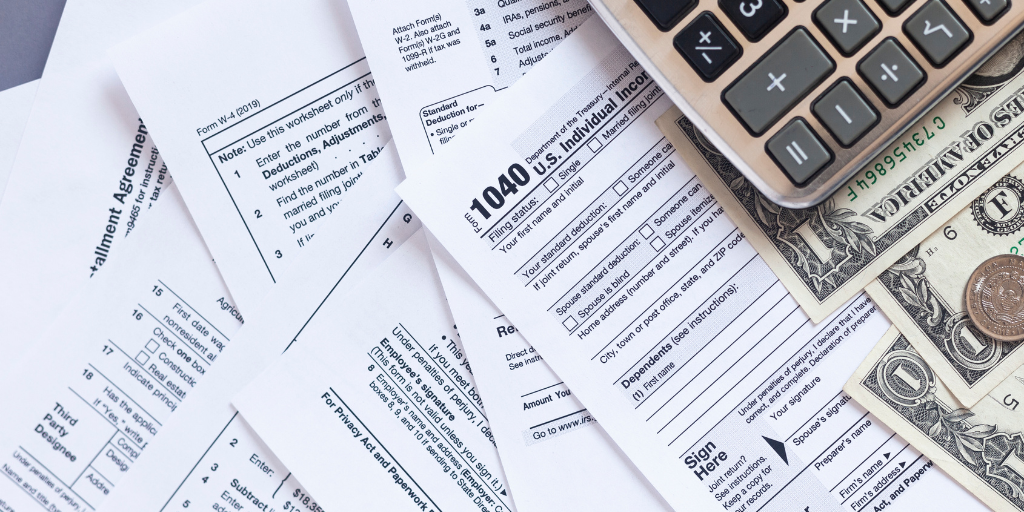
Understanding the Impact of State Laws on HOA Accounting Practices
- December 30, 2024
- OHI

Homeowners Associations (HOAs) oversee common areas, amenities, and finances within residential neighborhoods. Accounting is among the crucial functions an HOA must perform because it deals with managing funds correctly, ensuring financial reports are accurate, and budgeting appropriately. Just as every community is unique in its needs, each state has its own set of laws that may affect HOA accounting practices.
State laws can impact different aspects of an HOA accounting, from tax requirements to reserve fund management. It is thus important for HOA boards and accountants to understand these laws to ensure compliance and maintain financial transparency for homeowners. This article will explore how state laws impact HOA accounting practices and what HOA boards need to be aware of to stay on top of their financial responsibilities.

In light of that, it would be important to discuss the basic concepts of HOA accounting. In a typical HOA, it collects dues or assessments from its homeowners to support operational activities such as landscaping, security, maintenance, and capital improvements. The collections are meant to fund day-to-day operations in addition to long-term planning through reserve funds.
State laws play a significant role in HOA accounting. These laws ensure that HOAs operate within the law and protect the rights of homeowners.

One of the most fundamental ways state laws affect HOA accounting relates to taxation and filing requirements. Although federal tax laws govern most tax issues for HOAs, tax laws at the state level vary and can impose specific rules affecting the way HOAs manage finances.
Some states exempt certain types of HOAs from taxes, especially if they fulfill certain requirements. For instance, if an HOA is formed to maintain specific facilities and services, such as parks or recreational areas, it can be tax-exempt. This tax exemption is not automatic in all states, and the process of obtaining it can vary.
HOA boards must understand the requirements in their state for obtaining and maintaining tax-exempt status. Failure to meet these requirements can result in penalties, interest, and additional taxes.
State laws may also determine whether HOAs pay sales taxes or property taxes on some of their transactions. For instance, when an HOA buys or sells property, there might be specific property tax considerations under the state law that the board has to account for in its financial reports.
In addition, some of the services or products bought by the HOA are usually charged with sales tax and must be known to enable appropriate accounting. Some states provide exemptions on taxes for some of the purchases made by the HOAs for common areas or community amenities, while others may not.
In cases where an HOA accounting has investment income from its reserve funds or other financial activities, state laws may be relevant to how that income is taxed. Some states may require taxation of the income an HOA earns from its reserve funds, while others may have other requirements depending on the nature of the income.
HOA accounting boards should know the investment income tax laws of their state as misreporting income or failure to pay taxes on income earned would lead to penalties.

One area where state laws have a sizable impact on HOA accounting is in the management of reserve funds. Reserve funds are crucial for long-term planning because they provide the funds required for major repairs or replacements when necessary. Because of this, there are rules and regulations that differ from state to state about how one should handle these funds.
Some states have specific laws that require HOAs to maintain reserve funds. Such laws may dictate the minimum percentage of assessments that must be allocated to reserve funds or set guidelines for how the funds are to be used. For example, some states require HOAs to conduct a reserve study every few years to determine how much money should be saved for future repairs and replacements.
In states where reserve fund regulations are in place, HOA accountants need to ensure that the right amount is put into reserves, and the usage of such funds needs to be tracked to avoid a breach of the law
The states might require that all reserve funds are accounted for and separately reported compared to operating funds in an HOA financial statement. To avoid misallocating some funds, reserve funds should appear separately in an HOA’s financial statements. Annual reports that list reserve fund balances clearly allow homeowners to see exactly the amount of money available for future repairs.
Further, using reserve funds for anything other than what it was originally established for might violate state laws, which can bring on fines. Depending on the state, how the reserve funds have to be handled and reported can differ, so accountants working for HOAs should stay abreast of all that.

Most states have laws in place that require HOA accounting firms to provide financial transparency for their members. Such requirements include when and how the associations should make their financial statements available, ensuring that the statements are clear, accurate, and up-to-date for the account of the homeowners.
Many states require that HOA accounting firms provide an annual financial statement that includes a balance sheet, income statement, and details of expenditures. This statement is often reviewed by the HOA’s membership during annual meetings. States may set specific deadlines for when the financial statements must be completed and shared with homeowners.
Failure to meet these deadlines can lead to fines or other penalties for the HOA board. Furthermore, some states require that a third-party auditor review the HOA’s financial statements before they are presented to homeowners.
Some states require that HOAs have regular audits for financial integrity. These audits can be either internal or by an outside accounting firm. In some states, the audit is mandatory every few years, while in other states, it is not. Regardless of the state law, HOA boards should know if an audit is mandatory and prepare for it.

Another important consideration is the state-specific reporting practices that affect HOA accounting. Though financial statements are generally similar, some states have additional requirements on how the financial data should be presented. For instance, some states require a breakdown of expenses in specific categories such as legal fees, maintenance costs, or insurance premiums.
It is important for HOA accountants to be aware of these additional reporting requirements so that their reports do not violate state laws and the accountant avoids any fines or penalties.

State laws vary widely, and even local regulations may impact HOA accounting practices. An HOA in a big city may have to deal with different tax or financial reporting requirements than one in a small town. This calls for an HOA board not only to keep abreast of the state laws but also an eye on any local ordinances that might affect their accounting practices.

State laws are essential as they impact the accounting practices of HOAs. From tax laws to managing reserve funds and financial reporting, knowing how these apply ensures compliance, transparency, and a healthy financial situation within the HOA. Staying up-to-date and working closely with an accountant or legal professional that is familiar with the applicable local and state regulations allows HOA boards to make sure their financial activities will be smooth and comply with the law.
Contact us for a customized NO OBLIGATION proposal for outsourcing your accounting activities.









